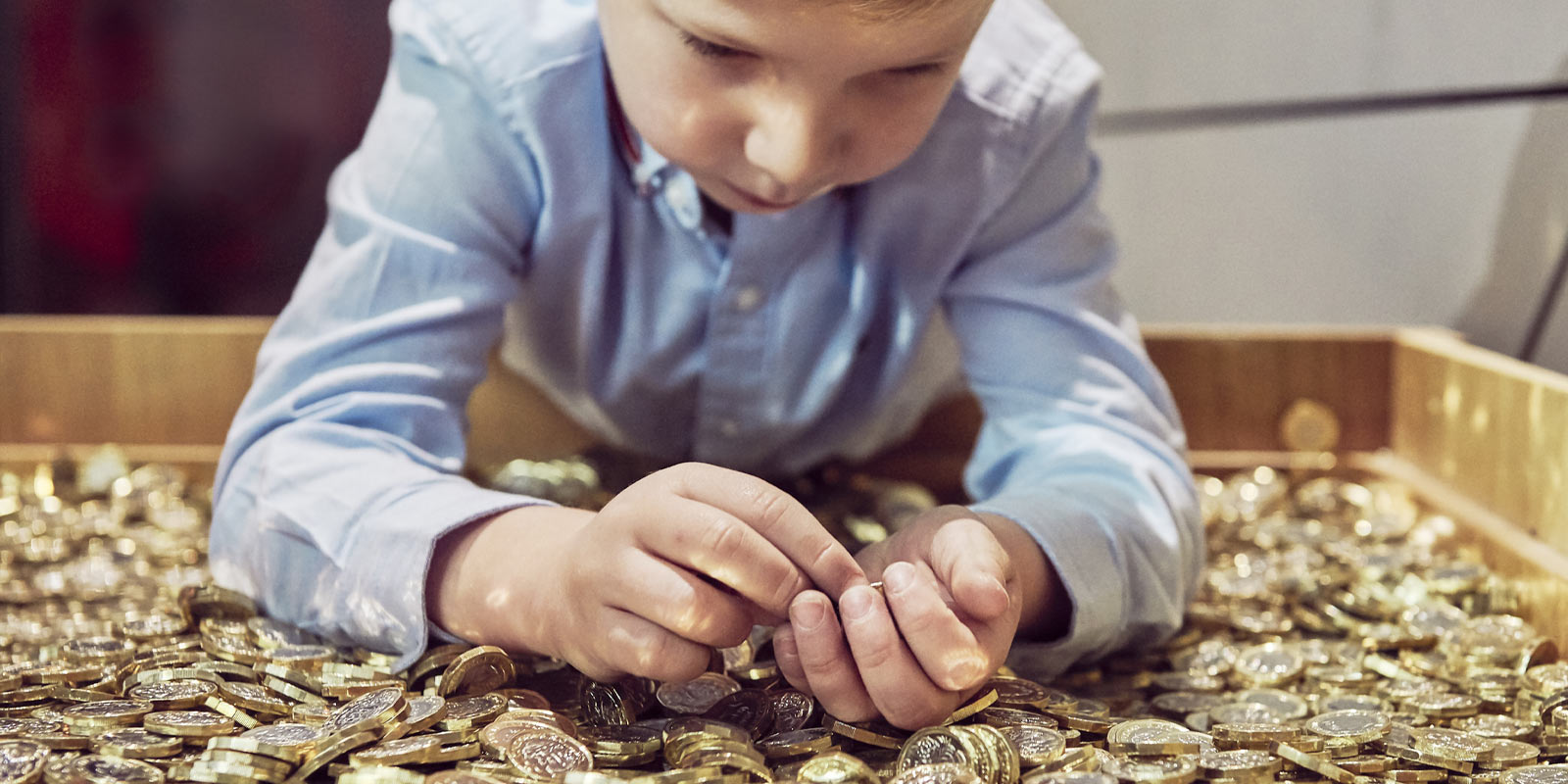
£1 billion set to be spent on unwanted Christmas gifts, The Royal Mint reveals
- Brits are set to spend £4.5 billion on gifts for kids this year, but a quarter of these will be left used
- Two thirds of parents say coronavirus has changed the way they will gift
- 55% looking to save for their kids’ future as opposed to buying physical presents
- The Royal Mint launches ‘Little Treasures’ - the first ever savings account designed to enable loved ones to give the gift of gold to children aged 0-18
Wednesday 16th December: As the nation prepares for a Christmas like no other, research has found that British parents believe £1 billion* worth of the presents given to children will go unused.
The research, commissioned by The Royal Mint, reveals that a total of £4.5 billion will be spent on Christmas presents for children this year in an attempt to bring festive cheer to the end of a difficult year. However, one in four (25%) of these gifts will be left unused and not played with**. In contrast, almost two thirds (64%) of parents agree they will be gifting differently in light of COVID-19. Interestingly, 46% of Brits admit they are less likely to buy physical gifts for loved ones than they were in 2019. Instead, 55% are looking to put money spent on presents into saving funds for their children to enjoy at a later date.
With this in mind The Royal Mint has launched Little Treasures, the first ever savings account designed to enable adults to invest in gold specifically for children from 0-18. This year in particular, gold has had a record-breaking year largely due to the uncertainty created by the global pandemic and this new product is designed to make investing in gold even easier, particularly for those new to the market.
Parents cited increased importance of financial security (44%), planning for the future (40%) and the significance of material goods decreasing (26%) as the key reasons for this shift in approach to gifting.
Andrew Dickey, Divisional Director for Precious Metals at The Royal Mint, commented: “It is really interesting to see that Brits are planning to gift differently this Christmas, in light of how the world has changed. At a time when planning for our children’s future is more important than ever, our new Little Treasures investment product will allow parents, grandparents and loved-ones to invest a little each month in gold - a precious metal that’s increased in value over time.”
The survey highlights that of the 17 physical gifts the average child is expected to receive this Christmas, 43% of parents anticipate they’ll return or exchange at least one. On average, kids in Newcastle are set to get the most (24 presents) followed by Plymouth, Norwich, Glasgow (21 presents) and Manchester (20 presents). The majority of parents in Leeds (60%), Brighton (53%) and London (52%) are expecting to head back to the shops with unwanted gifts. This compares to just 15% in Glasgow.
With so many gifts being wasted, Little Treasures is a gift that keeps giving. The Royal Mint has revealed that if you would have invested £25 a month in gold over 18 years between 2002 and 2020, you would have £13,393. When compared to putting the same amount into a 2% cash ISA, the investment would have accumulated £6,493.
Andrew continues: “If parents, grandparents or loved ones want to give the gift of gold this Christmas, Little Treasures is the perfect option. As the home of gold in the UK, The Royal Mint is ideally placed to launch a platform such as this and what better time than Christmas.”
The Royal Mint has established itself as a leader in gold investment in the UK, offering both physical gold in the form of coins and bars and digital gold investment options. A Little Treasures account is the first account in the UK that is specifically dedicated to saving gold for children, allowing families to start building a nest egg from £25 a month.
To find out more, visit: www.royalmint.com/littletreasures
ENDS
Notes to editor:
The research was conducted by Censuswide with 1000 parents of children aged 0-10 between 27.11.20 to 01.12.20. Censuswide abide by and employ members of the Market Research Society which is based on the ESOMAR principles.
*Calculated using ONS figures for children aged 0-10 (8,820,889)
** The top reasons behind this include the gift being deemed as ‘boring’ (34%), similar items being gifted (33%), the child already owning one (21%) and the present isn’t the latest version of the item (13%).
Media enquiries:
theroyalmint@hopeandglorypr.com
About The Royal Mint
The Royal Mint has an unbroken history of minting British coinage dating back over 1,100 years. Based in the Tower of London for over 500 years, by 1812 The Royal Mint had moved out of the Tower to premises on London’s Tower Hill. In 1967 the building of a new Royal Mint began on its current site in South Wales, UK, to accommodate the minting of UK decimal coinage.
Today, The Royal Mint is the world’s largest export mint, supplying coins to the UK and overseas countries.
The Royal Mint has also diversified into a number of other complementary businesses, building on the values that have been at the heart of the organisation throughout its history - authenticity, security, precious metals, craftsmanship and design:
Precious Metals
Throughout history, The Royal Mint’s name has been synonymous with precious metals and bullion. The organisation trades physical and digital precious metal worldwide and has a global network of distributor partners.
Consumer coin division
The organisation runs a thriving commemorative coin business, gifting, and a collector services division retailing historic coins, an authentication and valuation service and secure storage.
The Royal Mint Experience
The Royal Mint entered the tourism business in 2016 when it opened its popular visitor centre, The Royal Mint Experience, at its home in Llantrisant, South Wales. The attraction welcomes around 100,000 visitors a year.
